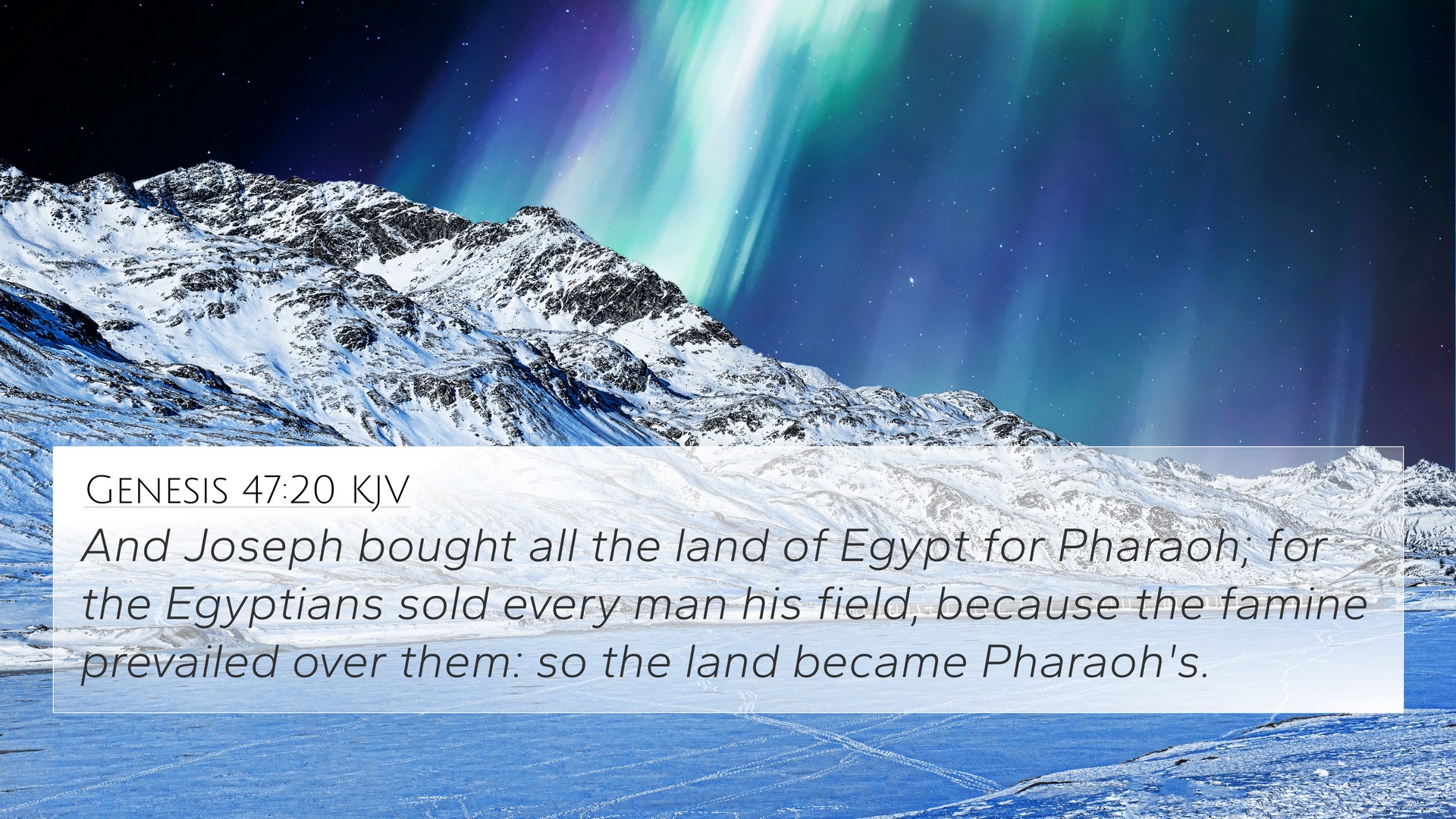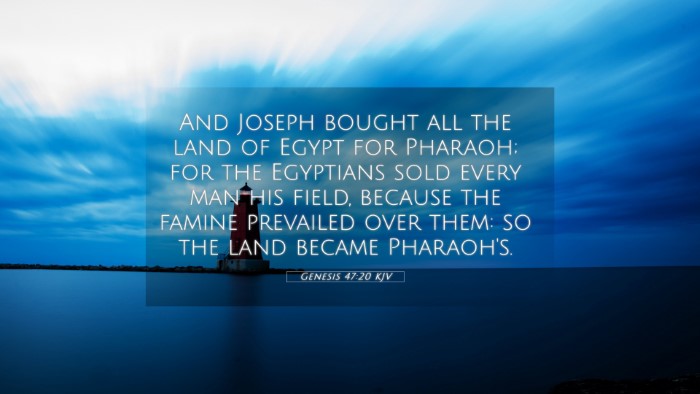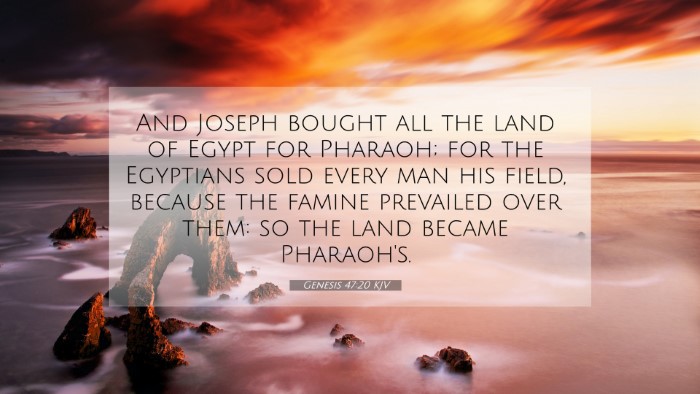Understanding Genesis 47:20
Genesis 47:20 states, "So Joseph bought all the land of Egypt for Pharaoh, for every man of the Egyptians sold his field, because the famine prevailed over them: so the land became Pharaoh's." This verse is central to understanding the socio-economic dynamics during the time of Joseph in Egypt, particularly the impact of famine on the livelihoods of the people.
Summary of Insights
The insights from various public domain commentaries reveal layered meanings in this text that pertain to sovereignty, stewardship, and the fulfillment of divine purpose.
1. Context and Background
Joseph, having risen to power in Egypt, demonstrates exceptional management skills in preparing for and responding to the famine that struck the land. The catastrophic effects of the famine forced the Egyptians to relinquish their rights to their lands in a bid for survival.
2. Theological Implications
- According to Matthew Henry, this passage highlights God's providence in using Joseph to position Egypt under Pharaoh's rule, which signifies the ultimate authority of God orchestrating events through Joseph.
- Albert Barnes elaborates on the political implications of such actions, showcasing how Joseph's actions preserved the nation and bolstered Pharaoh's power amidst crisis, shedding light on themes of authority and governance.
3. Commentary Perspectives
-
Adam Clarke comments on the moral aspect of this acquisition, noting the hardship it imposed on the families while also emphasizing the essential survival during a catastrophic event.
-
Matthew Henry further notes how this transaction reflects broader themes of reliance on God in times of distress—demonstrating that even in dire situations, God's plan unfolds through human actions.
-
Albert Barnes points out that this act solidified Pharaoh's wealth and power, allowing Egypt to emerge from famine as a strong nation, reflecting God's providential care for His people through human governance.
4. Connections with Other Bible Verses
This verse can be further examined through various cross-referenced Scriptures that enhance its understanding:
-
Genesis 41:30-31: Reflects the foresight of Joseph regarding the famine.
-
Exodus 1:11: Discusses the oppression of the Israelites, which sets a significant contrast to the prosperity of Pharaoh’s rule post-famine.
-
Psalm 105:17-22: Affirms God's provision for Israel through Joseph's reign in Egypt.
-
Proverbs 21:1: Connects with the idea that God controls the hearts of rulers, paralleling the sovereign control Pharaoh exercises over the land.
-
Matthew 6:31-33: This New Testament teaching reflects the holistic providence of God and serves as a reminder for believers to trust in God's care.
-
Romans 8:28: Emphasizes that all things work together for good, connecting the dots from Joseph’s trial to his divine purpose in Egypt.
-
Acts 7:9-10: Discusses Joseph’s pivotal role in preserving the chosen family during the famine, further echoing God’s purpose in adversity.
5. Conclusion
Genesis 47:20 serves as a profound narrative showcasing faith amid calamity, underpinned by the principles of divine providence and the complex relationships between authority, survival, and the fulfillment of God’s plan.
For those exploring insights on this verse, the themes extend further into how God provides and governs through His chosen people, urging believers to seek connections with their faith, the overarching sovereignty of God, and the relational dynamics at play throughout Scripture.


